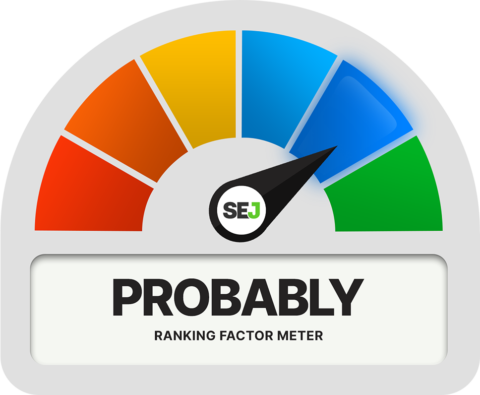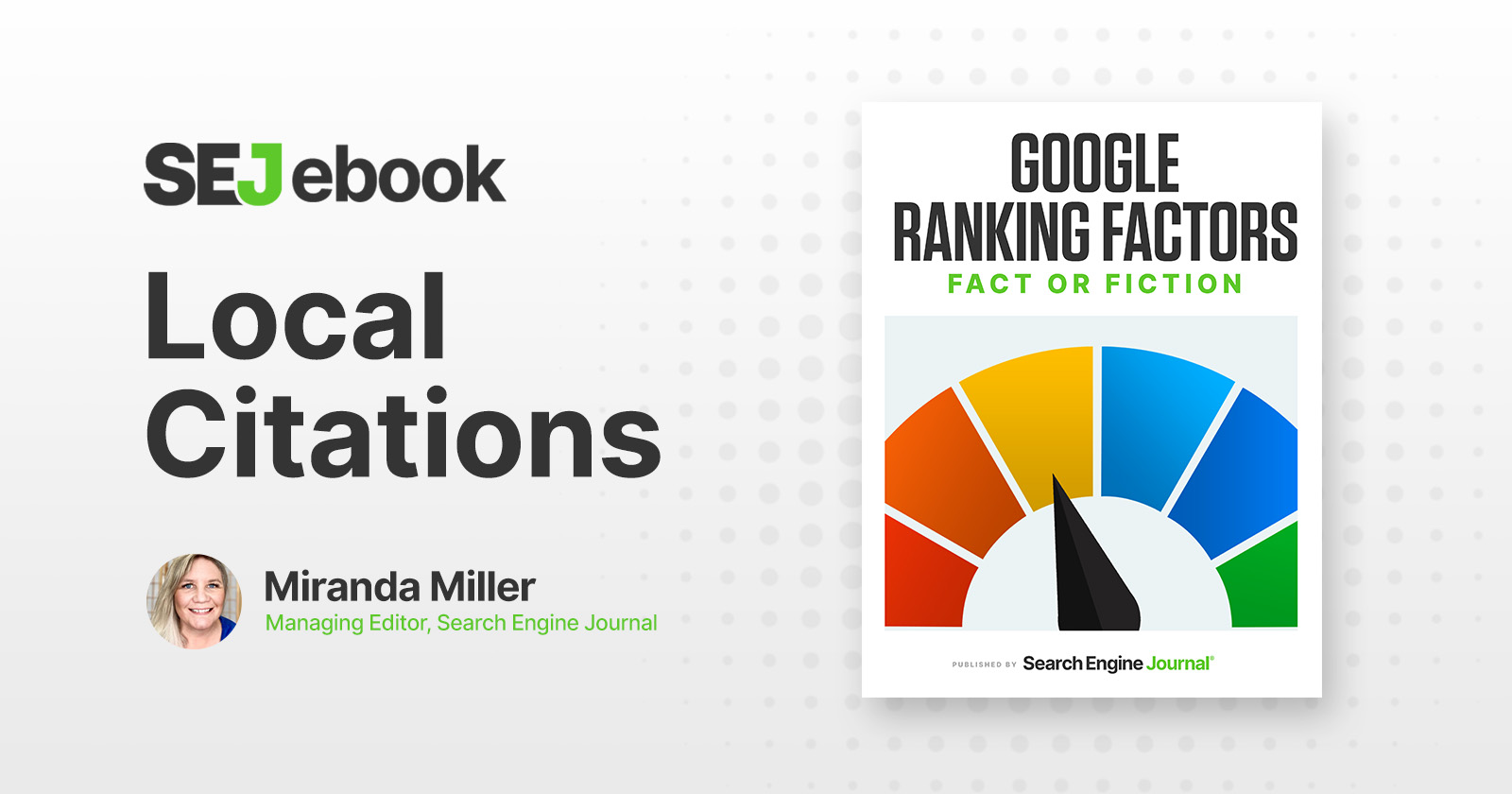In local SEO, a citation is a mention of key business information – your name, address, and phone number (NAP) – anywhere else on the web.
Local citations might appear in directories, on social networking or review sites, in apps, and on all kinds of other websites.
Clearly, these are an important part of a searcher’s experience; NAP info is how a local consumer will find their way to your store or give you a call.
But do citations help you rank higher in Google Search results?
The Claim: Local Citations As A Ranking Factor
Some citations allow only for the location’s name, address, and phone number.
However, you may be able to add a website link, business description, photos, and more, depending on the directory or platform.
The idea here is that each of these optimizations will help you rank higher in local search results:
- Having your NAP info appear on more external sites.
- Ensuring the accuracy of your citations.
- Optimizing each one by adding as much supporting detail as the fields on that site allow.
WhiteSpark’s industry survey on local ranking factors provides a good framework that illustrates the variety of considerations in play when we talk about local citation signals. Citations are evaluated based on:
- Consistency.
- Quality/authority.
- Quantity.
- Enhancement/completeness.
The Evidence For Citations As A Ranking Factor
Citations have long been widely accepted by SEO professionals as a key local ranking factor.
“Consistency of citations” came in at #5 in Moz’s 2020 industry survey of what SEO pros believe are local ranking factors. (They were ranked fifth in the 2018 survey, as well, for both Local Pack/Finder and Localized Organic search results.)
However, what it is about citations that matter most has been the subject of debate over the years.
When BrightLocal surveyed the industry in 2016, 90% of respondents said citation accuracy was “very important” to “critical” for local search rankings. What’s more, 86% said the quality of those citations was more important than quantity.
In this video, Google confirms that local results are based primarily on relevance, distance, and prominence.
And while you cannot control all of these factors, they say:
“First, make sure all of your business information is complete. It’s important to have accurate information including your phone number, address, and business category.”
Google also recommends that in order to ensure the accuracy of your GMB listing and “help you stand out”, you should:
- Double-check that hours of operation are accurate.
- Use special hours for holidays.
- Add photos of your location, services, or merchandise.
- Verify your location to tell Google you are the correct owner of the business.
In their “Improve your local ranking on Google” help resource, the advice is clear:
“Local results favor the most relevant results for each search. Businesses with complete and accurate information are easier to match with the right searches.”
The Evidence Against Local Citations As A Ranking Factor
You could argue that citations are too difficult to maintain and therefore not a reliable signal.
And you would be right.
It’s incredibly difficult to ensure that all citations across the local search ecosystem are kept up to date.
With so many aggregators, user suggestions, manual errors, and other elements wreaking havoc with citation information, how can Google trust that the information they’re finding about any one business location is accurate?
This is precisely why local listings management is so important, and providing Google a single source of truth through your GMB profile is key.
Monitoring for citation errors is essential so you can correct them before the wrong information is picked up by aggregators and more widely distributed.
Citation inconsistencies can happen for countless reasons:
- Businesses move to new locations.
- Brands open and close stores.
- Staff and owners create listings without documenting them, and they grow outdated as the business evolves.
- Consumers create duplicate listings by making spelling mistakes when trying to leave a review.
- Google searchers suggest listing edits with the best of intentions but the wrong information.
- And more. A lot more.
Google recognizes that all of these issues can impact citation accuracy, which is why it relies on such a wide array of sources to determine whether the information is trustworthy.
Local Citations As A Ranking Factor: Our Verdict

Bottom line: It is all but confirmed officially by Google that Google uses local citations as a ranking signal in Local Pack/Finder and localized organic search results.
Google’s aim is to provide the best, most trustworthy answers to every searcher.
Citations are an important signal as to whether key business information is correct and that location is the best answer for a local searcher’s relevant query.
If you’re just getting started, check out John McAlpin’s Citations & Local SEO: The Ultimate Beginner’s Guide.
Ready to get more advanced? Make sure your citations are accurate and complete on as many relevant sources as possible. WhiteSpark’s free Top Local Citation Sources by Country finder enables you to pull a list of the top directories, networks, websites, etc. in 15 countries.
And if you really want to step up your local strategy, you’ll want to download Local SEO: The Definitive Guide to Improve Your Local Search Rankings.
Featured Image: Paolo Bobita/Search Engine Journal





